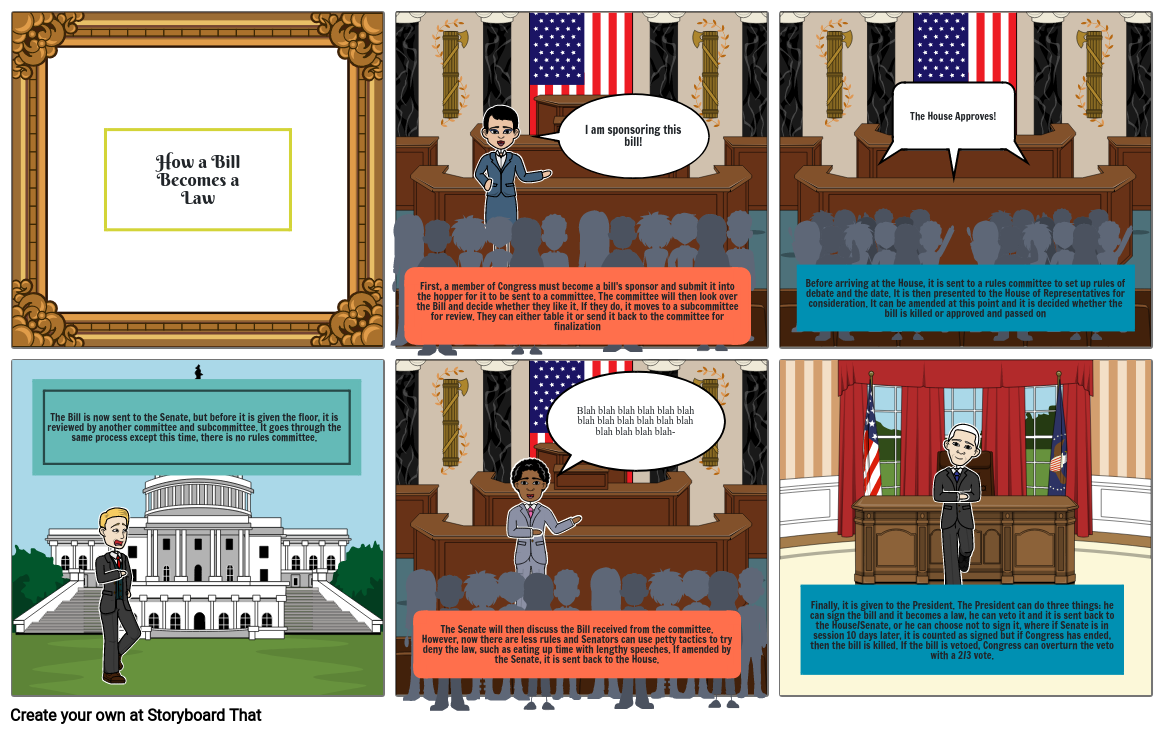How a Bill becomes a Law

Текст Раскадровки
- How a Bill Becomes a Law
- First, a member of Congress must become a bill's sponsor and submit it into the hopper for it to be sent to a committee. The committee will then look over the Bill and decide whether they like it. If they do, it moves to a subcommittee for review. They can either table it or send it back to the committee for finalization
- I am sponsoring this bill!
- Before arriving at the House, it is sent to a rules committee to set up rules of debate and the date. It is then presented to the House of Representatives for consideration. It can be amended at this point and it is decided whether the bill is killed or approved and passed on
- The House Approves!
- The Bill is now sent to the Senate, but before it is given the floor, it is reviewed by another committee and subcommittee. It goes through the same process except this time, there is no rules committee.
- The Senate will then discuss the Bill received from the committee. However, now there are less rules and Senators can use petty tactics to try deny the law, such as eating up time with lengthy speeches. If amended by the Senate, it is sent back to the House.
- Blah blah blah blah blah blah blah blah blah blah blah blah blah blah blah blah-
- Finally, it is given to the President. The President can do three things: he can sign the bill and it becomes a law, he can veto it and it is sent back to the House/Senate, or he can choose not to sign it, where if Senate is in session 10 days later, it is counted as signed but if Congress has ended, then the bill is killed. If the bill is vetoed, Congress can overturn the veto with a 2/3 vote.
Создано более 30 миллионов раскадровок

